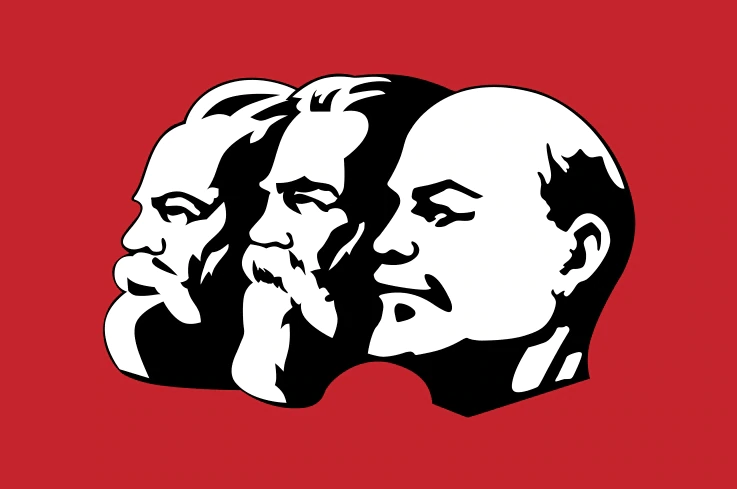ProleWiki:Main page/Content: Difference between revisions
More languages
More actions
(added link to survey temporarily, also fixed number of comrades due to new user group) |
m (changed heading to h2, it was too big) |
||
| Line 6: | Line 6: | ||
<div class="mainpage-header"> | <div class="mainpage-header"> | ||
<div class="header-intro"> | <div class="header-intro"> | ||
< | <h2>Please take our short survey!</h2> | ||
<p>We are currently running a survey, comrades, to gather feedback on our Library section. Take the survey here: '''https://questionpro.com/t/AX7J7ZySkD''' (takes 3 minutes), it would really help us out. Thank you!</p> | <p>We are currently running a survey, comrades, to gather feedback on our Library section. Take the survey here: '''https://questionpro.com/t/AX7J7ZySkD''' (takes 3 minutes), it would really help us out. Thank you!</p> | ||
<h1>Welcome to ProleWiki!</h1> | <h1>Welcome to ProleWiki!</h1> | ||
Revision as of 20:55, 21 May 2023
Please take our short survey!
We are currently running a survey, comrades, to gather feedback on our Library section. Take the survey here: https://questionpro.com/t/AX7J7ZySkD (takes 3 minutes), it would really help us out. Thank you!
Welcome to ProleWiki!
We are ProleWiki, a communist (Marxist-Leninist) project founded in September 2020. Our aim is to build an anti-imperialist and proletarian collaborative encyclopedia, with information on current events, communist parties worldwide, countries, and more. We also host a library of texts important to the international proletarian movement, from Marx and Engels to Lenin and Stalin. Since our beginning in 2020, we currently have 4,109 articles and counting.
- Total number of articles: 4,109
- Number of uploaded files: 4,088
- Number of comrades: 100
- Number of edits: 61,045

Marxism–Leninism is an ideological framework that originated in the application of Marxist theory to revolutionary practice by Vladimir Lenin and the Communist Party of the Soviet Union. It is based on dialectical materialism, the materialist conception of history, and Marxist political economy including the Leninist conception of imperialism.
After the success of the Russian revolution in 1917 and the establishment of the Soviet Union in 1922, many communist parties around the world began to adopt Marxism–Leninism as their political line, and Marxism–Leninism was the main theoretical framework which guided the Korean, Vietnamese, Cuban, Laotian and Chinese revolutions as well as other successful national liberation and revolutionary movements in Africa and Asia.
Today, Marxism–Leninism is one of the theoretical foundations of governing communist parties in already existing socialist (AES) states, including China, Cuba, Korea, Laos and Vietnam. This is the political line of many communist parties waging class struggle.Here's how you can help:
- Create an account and participate in our community. Visit the recent changes to see what other comrades have been doing.
- Edit already existing articles. Or you can create new articles, too.
- Check out current needed pages and create some of them.
- Add Marxist works to our library.
- Share your creative works on our essays.
- If you appreciate our work, you can donate to us!
Top contributors from past week
Last 7 days (Top 10) |
|||||||||||||||||||||||||||||||||||||||||||||||||||||||||||||||||||||||||||||||||||||||||||
|
|||||||||||||||||||||||||||||||||||||||||||||||||||||||||||||||||||||||||||||||||||||||||||
- October 2024
ProleWiki has a brand new homepage! Read our release here.
- 01 March 2024
You can now download our pages as PDF or EPUB books! To do so, open the main menu and click "Create a book" at the far end of it. Then follow the instructions. You can add several different pages to a book, and then download it all as one file. We hope you enjoy this new feature!
- 20 September 2023
We are proud to announce our brand new Essays space! Read our release here. The new custom-built essays frontend looks closer to a blog and whereas the legacy essays space ordered essays by author, this new interface orders them by publication date with a sidebar of available items. It also provides an excerpt of the essay, ultimately all improving discovery.
